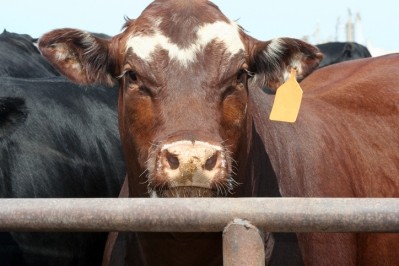Bovaer's global reach expands: Japan next in line for market introduction

At the core of this collaboration is the implementation of Bovaer, a feed additive with significant scientific backing, and one that is designed to tackle the critical issue of methane emissions from livestock, a major contributor to greenhouse gas (GHG) emissions, particularly within the dairy sector.
The adoption of Bovaer promises significant reductions—up to 30% for dairy cattle and 45% for beef feedlot cattle, says dsm-firmenich.
The feed additive is already commercially available in 58 countries including the EU, UK, Canada, Mexico, Australia, most of Latin America, and select other markets. The authorities are currently reviewing an application for registration in Japan. “We are hopeful we can secure approval for Bovaer in Japan within the next 12 months,” Mark van Nieuwland, vice president Bovaer at dsm-firmenich, tells FeedNavigator.
The company will work with Meiji HD to explore how to implement the product in the Japanese dairy sector and particularly in that dairy processor’s supply chain. “Preparation works will start now, while we await local market authorization.”
Entering into an alliance such as this provides a complementary approach for both partners to achieve their respective sustainability goals, remarks van Nieuwland.
Meiji HD is committed to contributing to the Paris agreement 1.5C target, and to achieving carbon neutrality/net zero across its supply chain by 2050.

“In our efforts to expand the implementation of Bovaer, our strategy involves collaboration with downstream entities such as dairy processors, consumer packaged goods (CPG) companies, food service providers, and retail outlets. A sizable portion of their Scope 3 emissions stem from on-farm activities, and this collaborative approach enables us to achieve scalability and tailor our business initiatives to suit local dynamics. Ultimately, this accelerates the widespread adoption of Bovaer, driving tangible progress towards sustainability goals,” explains van Nieuwland.
Global methane pledge
The partnership is timely. Alongside more than 100 other countries, Japan signed the Global Methane Pledge to reduce global methane emissions by 30% by 2030 from the 2020 baseline at COP 26 in Glasgow.
About 80% of Japan's national methane emissions are from the agriculture, forestry, and fisheries sectors. Methane from animal farming makes up 35% of Japanese methane emissions (27% enteric methane, 8% excreta). On top of that 42% comes from rice farming. To tackle the challenge of reducing methane emissions and a multitude of other issues in the agriculture sector, Japan's Ministry of Forestry, Agriculture, and Fisheries (MAFF) introduced the MIDORI strategy in 2021.
“The Japanese government has been particularly proactive in promoting innovation aimed at reducing enteric methane emissions. With Bovaer already established and registered globally, its impending registration in Japan holds promise as a highly effective solution,” maintains van Nieuwland.
Farmer rewards
Meiji HD and dsm-firmenich will tackle specific challenges unique to implementing Bovaer in the Japanese dairy sector. One such challenge involves navigating the registration process within the government run J-Credit scheme, which provides incentives for farming methods aimed at reducing sectoral GHG emissions.
Additionally, the partners are devising strategies to effectively recognize and reward farmers for their contributions to reducing methane emissions, a task complicated by the sector's fragmented market and overarching structure.
“Our experiences in various markets have provided valuable insights into effectively monitoring Bovaer usage, implementing robust carbon accounting practices, and devising mechanisms to incentivize its adoption. Drawing upon these learnings, we are well-equipped to collaborate with the Japanese dairy sector in reducing its environmental footprint,” adds van Nieuwland.
dsm-firmenich’s overarching goal is to position the feed additive as a comprehensive solution provider for the entire dairy and beef value chain worldwide. “Further expansion into Asia also fits into this plan. Our strategy involves prioritizing markets with substantial cattle populations and ambitious sustainability agendas."















